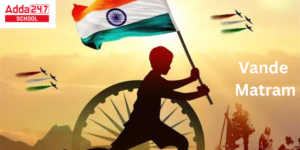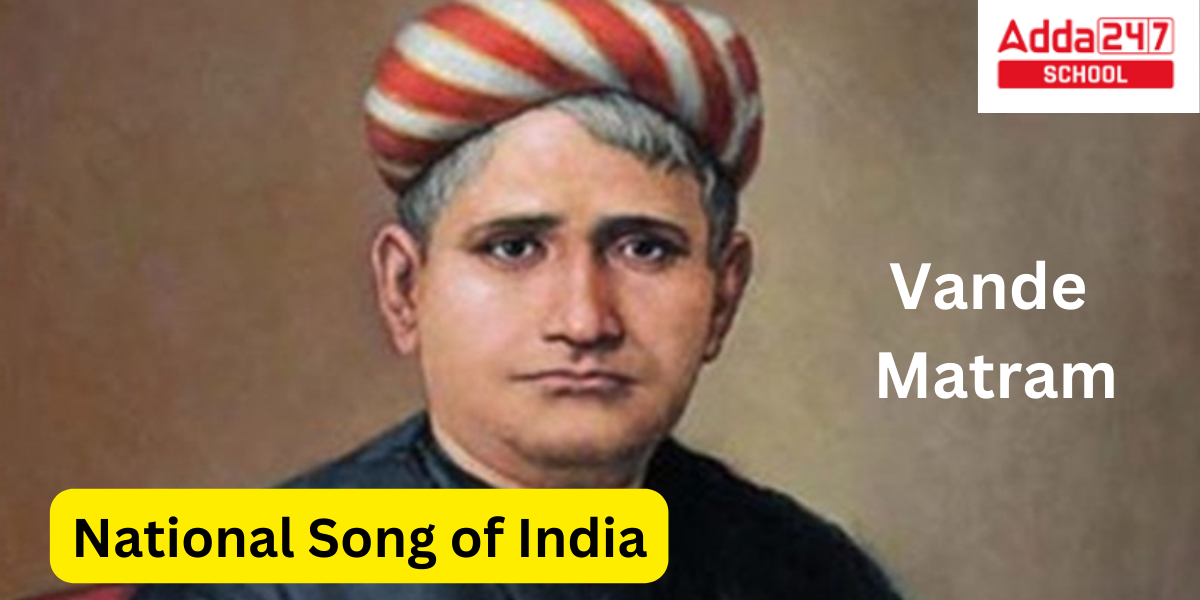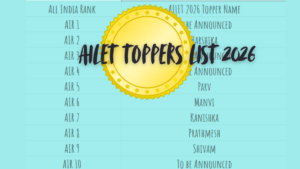National Song of India
Bankim Chandra Chatterjee wrote the poem Vande Mataram in Bengali that had been sanskritized in the 1870s. In October 1937, the Congress designated the poem’s opening two verses as the National Song of India.
The poem was first made available in 1882 as a Bengali novel called Anandmath by Chatterjee. It is a tribute to the motherland of the people, who is personified as the “mother goddess” in later lyrics. Though the poem does not specifically state it, this originally referred to Bengal, making Banga Mata (Mother Bengal) the “mother” figure. Vande Mataram was referred to as the “national Anthem of Bengal” by Indian nationalist and philosopher Sri Aurobindo.
National Song of India Written by
National Song of India, Vante Matram was written by Bankim Chandra Chatterjee. Indian author, poet, essayist, and journalist Bankim Chandra Chatterjee (26 or 27 June 1838 – 8 April 1894) was also a journalist. Anandamath, a seminal work of modern Bengali and Indian literature, was written by him in the Bengali language in 1882.
Vande Mataram, a song that personifies Bengal as a mother goddess and motivates activists during the Indian Independence Movement, was composed by him and was written in highly sanskritized Bengali. In addition to fourteen novels, Chattopadhayay also authored numerous serious, seriocomic, satirical, scientific, and critical treatises in Bengali. In Bengali, he is referred to as Sahitya Samrat, or “Emperor of Literature.”
Name of Historical Monuments in India
National Song of India History and Importance
One of the most well-known protest songs during the Indian independence movement was “Vande Mataram.” In reaction, the colonial authority outlawed the book and declared it a felony to sing the song in public. Many independence supporters were imprisoned by the colonial authority for defying the order, but workers and the general people routinely broke the ban by congregating and singing it in front of colonial officials. At the Calcutta Congress Session in Beadon Square in 1896, Rabindranath Tagore performed Vande Mataram.

It was performed by Dakhina Charan Sen five years later, in 1901, during a different Congress meeting in Calcutta. The song was performed during the 1905 Benares Congress Session by poet Sarala Devi Chaudurani. From Lahore, Lala Lajpat Rai founded the Vande Mataram magazine. The chant was the conclusion of Hiralal Sen’s 1905 first political motion picture in India. Vande Mataram was the last thing Matangini Hazra said before she was fatally murdered by the Crown police.
National Game of India- Official Name is Hockey
National Song of India Lyrics in English
Bande Mataram.
Sujalaṃ suphalam
Malayajasitalam
Sasyasyamalam
Mataram.
Subhra-jyotsna-pulakita-yamini
Phullakusumita-drumadalasobhini,
Suhasinim sumadhurabhasinim
Sukhadaṃ baradam Mataram.
Saptakotikantha-kala-kala-ninadakarale
Dbisaptakotibhujaidhrtakharakarabale,
Abala kena ma eta bale
Bahubaladharinim
Namami tarinim
Ripudalabarinim
Mataram.
Tumi bidya tumi dharma
Tumi hrrdi tumi marma
Tbaṃ hi pranah sarire.
Bahute tumi ma sakti,
Hrdaye tumi ma bhakti,
Tomarai pratima gari mandire mandire.
Tbam hi Durga dasapraharanadharini
Kamala kamala-dalabiharini
Bani bidyadayini
Namami tbam
Namami kamalam
Amalam atulam,
Sujalaṃ suphalam
Mataram
Bande Mataram
Syamalam saralam
Susmitam bhusitam
Dharanim bharanim
Mataram.
National Tree of India Name is Banyan Tree in English & Hindi
National Song of India Translation in English
Mother, I bow to thee.
Rich with thy hurrying streams,
Bright with thy orchard gleams,
Cool with the winds of delight,
Dark fields waving, Mother of might,
Mother free.
Glory of moonlight dreams,
Over thy branches and lordly streams,
Clad in thy blossoming trees,
Mother, giver of ease,
Laughing low and sweet,
Mother, I kiss thy feet,
Speaker sweet and low,
Mother, to thee I bow.
Who hath said thou art weak in thy lands,
When the swords flash out in seventy million hands,
And seventy million voices roar
Thy dreadful name from shore to shore?
With many strengths who art mighty and strong,
To thee I call, Mother and Lord!
Thou who savest, arise and save!
To her I cry who ever her foemen drove
Back from plain and Sea
And shook herself free.
Thou art wisdom, thou art law,
Thou art heart, our soul, our breath
Thou art love divine, the awe
In our hearts that conquers death.
Thine the strength that nerves the arm,
Thine the beauty, thine the charm.
Every image divine.
In our temples is but thine.
Thou art Goddess Durga, Lady and Queen,
With her hands that strike and her swords of sheen,
Thou art Goddess Kamala (Lakshmi), lotus-throned,
And Goddess Vani (Saraswati), bestower of wisdom known
Pure and perfect without peer,
Mother lend thine ear,
Rich with thy hurrying streams,
Bright with thy orchard gleams,
Dark of hue O candid-fair
In thy soul, with jewelled hair
And thy glorious smile divine,
Loveliest of all earthly lands,
Showering wealth from well-stored hands.
Mother, mother mine.
Mother sweet, I bow to thee,
Mother great and free.
Independence Day 2022: India, Theme, Images, Speech
National Song of India Lyrics in Hindi
वन्दे मातरम्
सुजलां सुफलाम्
मलयजशीतलाम्
शस्यश्यामलाम्
मातरम्।
शुभ्रज्योत्स्नापुलकितयामिनीम्
फुल्लकुसुमितद्रुमदलशोभिनीम्
सुहासिनीं सुमधुर भाषिणीम्
सुखदां वरदां मातरम्।।
सप्त-कोटि-कण्ठ-कल-कल-निनाद-कराले
द्विसप्त-कोटि-भुजैर्धृत-खरकरवाले,
अबला केन मा एत बॅले
बहुबलधारिणीं
नमामि तारिणीं
रिपुदलवारिणीं
मातरम्।।
तुमि विद्या, तुमि धर्म
तुमि हृदि, तुमि मर्म
त्वम् हि प्राणा: शरीरे
बाहुते तुमि मा शक्ति,
हृदये तुमि मा भक्ति,
तोमारई प्रतिमा गडी मन्दिरे-मन्दिरे।।
त्वम् हि दुर्गा दशप्रहरणधारिणी
कमला कमलदलविहारिणी
वाणी विद्यादायिनी,
नमामि त्वाम्
नमामि कमलाम्
अमलां अतुलाम्
सुजलां सुफलाम्
मातरम्।।
वन्दे मातरम्
श्यामलाम् सरलाम्
सुस्मिताम् भूषिताम्
धरणीं भरणीं
मातरम्।।
Also Read:









 AILET 2026 AIR 1: Check Full Toppers Lis...
AILET 2026 AIR 1: Check Full Toppers Lis...
 AILET Result 2026 OUT, How to Download S...
AILET Result 2026 OUT, How to Download S...
 CUET PG Crash Course 2026: Subject-Wise ...
CUET PG Crash Course 2026: Subject-Wise ...














